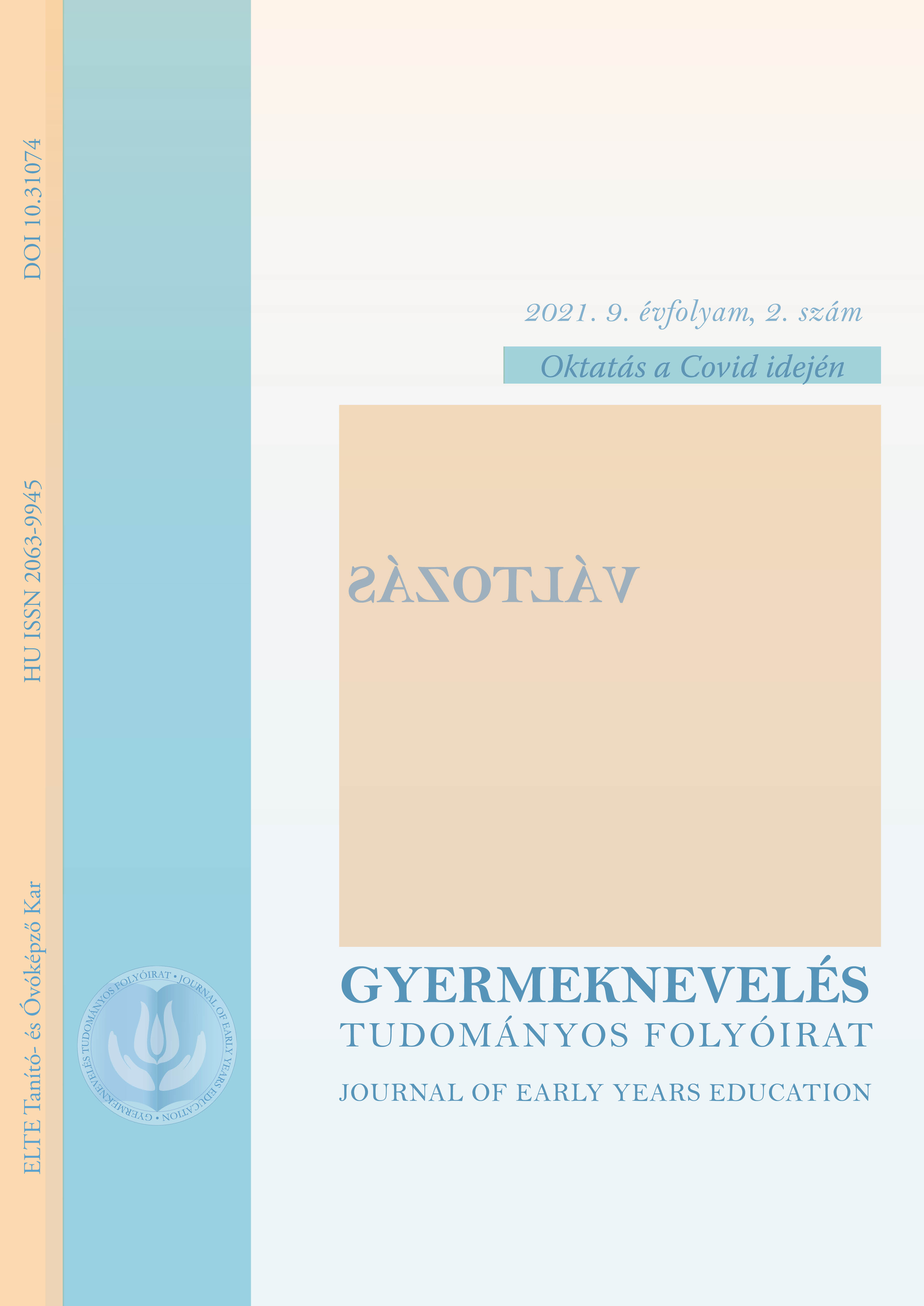Digital learning outside the classroom in primary schools during Covid19 – The role of school leaders in school organisation
DOI:
https://doi.org/10.31074/gyntf.2021.2.227.255Keywords:
organisational functioning, managerial decision making, digital work orderAbstract
The aim of the research was to investigate the organisational functioning of primary schools in the context of the development of extra-curricular learning work arrangements, based on information on the decision-making of heads of institutions. In May 2020, semi-structured telephone interviews were conducted with heads of 34 primary schools. The institutions are implementers of the Complex Basic Programme and were selected on the basis of the type of municipality, size of the institution and pedagogical added value. Based on the research, a general model of managerial tasks for the development of an extracurricular learning work system was established: (1) opportunity analysis, (2) capacity building, (3) choice of online media, (4) setting expectations for learning, (5) feedback-based management and (6) dealing with the problem of inaccessible learners. The coherence of the use of the digital platform has proved to be indicative of the organisational performance of the institution. However, the way in which the organisation operates is not linked to the success of the institution: heads of institutions that made decisions on the basis of discussion could be as capable as those that relied on authority - hierarchical decision-making. Informed decision-making was of crucial importance. This raises the question of whether ideal-typical organisational models, such as the learning organisation model, can be generalised in terms of leadership style.
Downloads
References
Brandhoff, B. (2009). Autopoietic systems, not corporate actors: A sketch of niklas luhmann’s theory of organisations. European Business Organization Law Review, 10, 307–322. https://doi.org/10.1017/S1566752909003073
Brunczel, B. (2009). Niklas Luhmann társadalomelmélete és a politikai gyakorlat. Replika: Szociológiai Viták és Kritikák: Társadalomtudományi Folyóirat, (66), 111–123.
Goffman, E. (1967). Interaction ritual: Essays in face-to-face behavior. Aldine Pub. Co.
Kools, M., Stoll, L., George, B., Steijn, B., Bekkers, V. & Gouëdard, P. (2020). The school as a learning organisation: The concept and its measurement. European Journal of Education, Research, Development and Policy, 55(1), 24–42. https://doi.org/10.1111/ejed.12383
Luhmann, N. (2000). Organisation und Entscheidung. Westdeutscher Verlag.
Luhmann, N. (2009). Szociális rendszerek: egy általános elmélet alapvonalai: Társadalomelmélet – kommunikációtudomány. Gondolat Kiadó – AKTI.
Luhmann, N. (2012). Strukturauflösung durch interaktion: Ein analytischer bezugsrahmen / structural breakup by interaction: an analytical frame of reference. Soziale Systeme: Zeitschrift Für Soziologische Theorie 17(1), 3–30.
Mead, G. H. & MORRIS, C. W. (1934). Mind, self & society from the standpoint of a social behaviorist. University of Chicago Press.
OECD (2018). Developing schools as learning organisations in Wales. Implementing education policies, 2617–6572. OECD Publishing. https://doi.org/10.1787/9789264307193-en
OECD (2020, Ed.). Learning remotely when schools close: How well are students and schools prepared? Insights from PISA. OECD Publishing.
Seidl, D. & Becker, K. H. (2006). Organizations as distinction generating and processing systems: Niklas Luhmann’s contribution to organization studies. Organization, 13(1), 9–35. https://doi.org/10.1177/1350508406059635
Seidl, D. & Schoeneborn, D. (2010). Niklas Luhmann’s Autopoietic Theory of Organisations: Contributions, Limitations, and Future Prospects. SSRN Electronic Journal, Working Paper No. 105, https://doi.org/10.2139/ssrn.1552847
Simmel, G., Blasi, A. J., Jacobs, A. K. & Kanjirathinkal, M. J. (2009). Sociology: Inquiries into the construction of social forms. Brill.
Vanderstraeten, R. & Biesta, G. (2006). How is Education Possible? Pragmatism Account of Communication and the Social Organisation of Education. British Journal of Educational Studies, 54(2), 160–174. https://doi.org/10.1111/j.1467-8527.2006.00338.x
Downloads
Published
How to Cite
Issue
Section
License
Copyright (c) 2021 Author

This work is licensed under a Creative Commons Attribution-NonCommercial-ShareAlike 4.0 International License.

